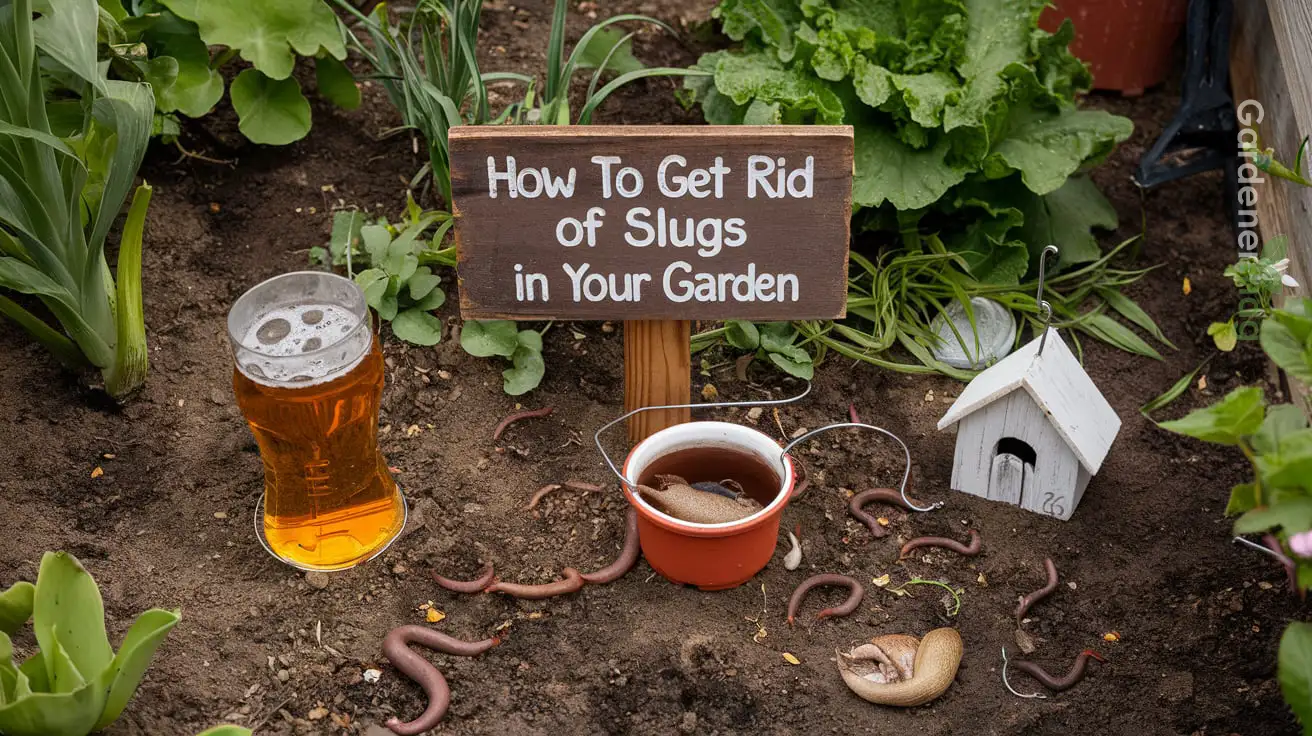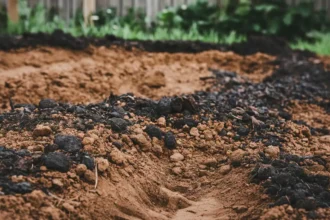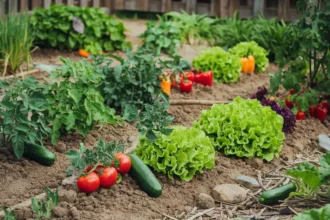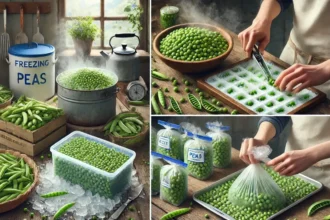As a beginner gardener, are you constantly battling with snugs and snails in your garden, and do you feel like you are losing the battle somehow?
- Signs That You Have Slugs in Your Garden
- How To Get Rid Of Slugs In Your Garden
- Encourage natural predators
- Eliminate the slugs with salt
- Use the beer traps
- Try used coffee
- Deter slugs using copper tape
- Apply Diatomaceous earth (DE) to your garden soil
- Apply Garlic
- Use the catch-and-release method
- Additional Tips on How to Get Rid of Slugs in Garden
- Conclusion
- Frequently Asked Questions
Don’t worry; there are easy methods to control these slippery, slimy, and pesky mollusks with voracious appetites.
How to get rid of slugs? In this article, you will find out the natural ways to get rid of garden snails and slugs around your garden and protect your vegetable garden from these menacing pests without using pesticides.
Signs That You Have Slugs in Your Garden
You need to be certain that your garden is truly under slug attack before you proceed with the slug control methods.
To guide you, here are the signs to look out for, and as soon as you identify any of these signs, you should know that your garden is under snug attack, and you can start treatment.
- Are there holes or ragged, irregular edges on your plants’ leaves?
- Are there holes or bites on the fruits?
- Are there slimy secretions around the plants or the surrounding soil?
- Are there little white eggs in the ground?
Luckily, treatment can be carried out at any time during the growing season. The following steps will help you to eliminate slugs from your farm.
How To Get Rid Of Slugs In Your Garden
The following steps will help you to get rid of snails and slugs from your garden without using any harsh pest control that can affect your plants or health.
Encourage natural predators
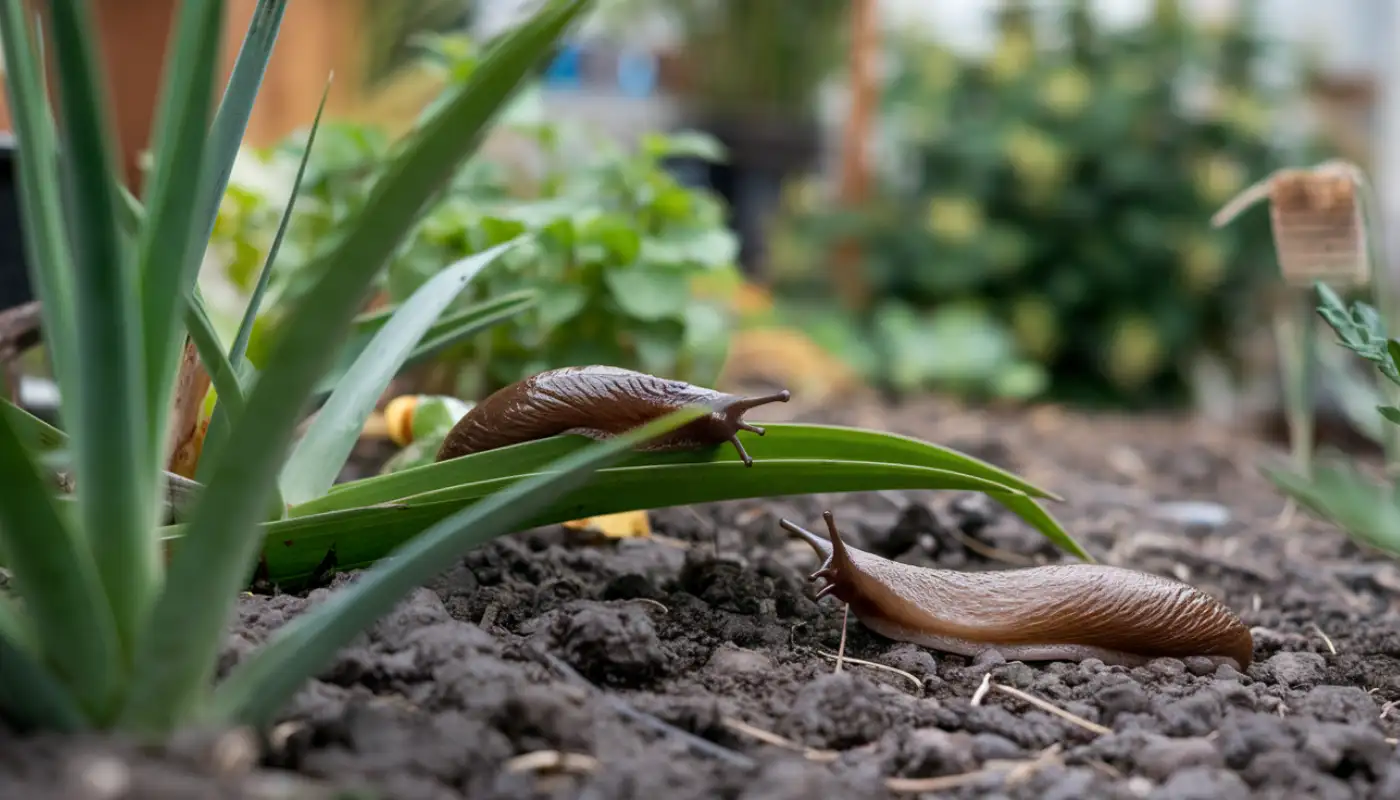
Introducing natural slug-hungry predators into your garden can be an effective way of removing slugs. For instance, you can introduce frogs, toads, birds, ducks, critters, chickens, rove beetles, newts, hedgehogs, salamanders, etc., into your garden to prey on the slugs.
However, it would be best if you were careful when introducing new creatures into your farm. It may lead to invasion, except if the new creatures are native and would always remain in your garden without eventually becoming a menace.
A preferred method is introducing nematodes. They are tiny organisms and can effectively kill the slugs via bacterial poisoning. The reason we recommend nematodes is that they are very effective and completely harmless to humans.
They are not cheap. That means you will spend more if you have a large garden. Also, they are less effective on snails because they work underground, but snails live overground.
Did you know that you are also a natural predator of slugs? Yes, you can pick the slugs off by hand and drop them in a bucket of soapy water. This can effectively remove slugs from your garden if you do it regularly.
Eliminate the slugs with salt
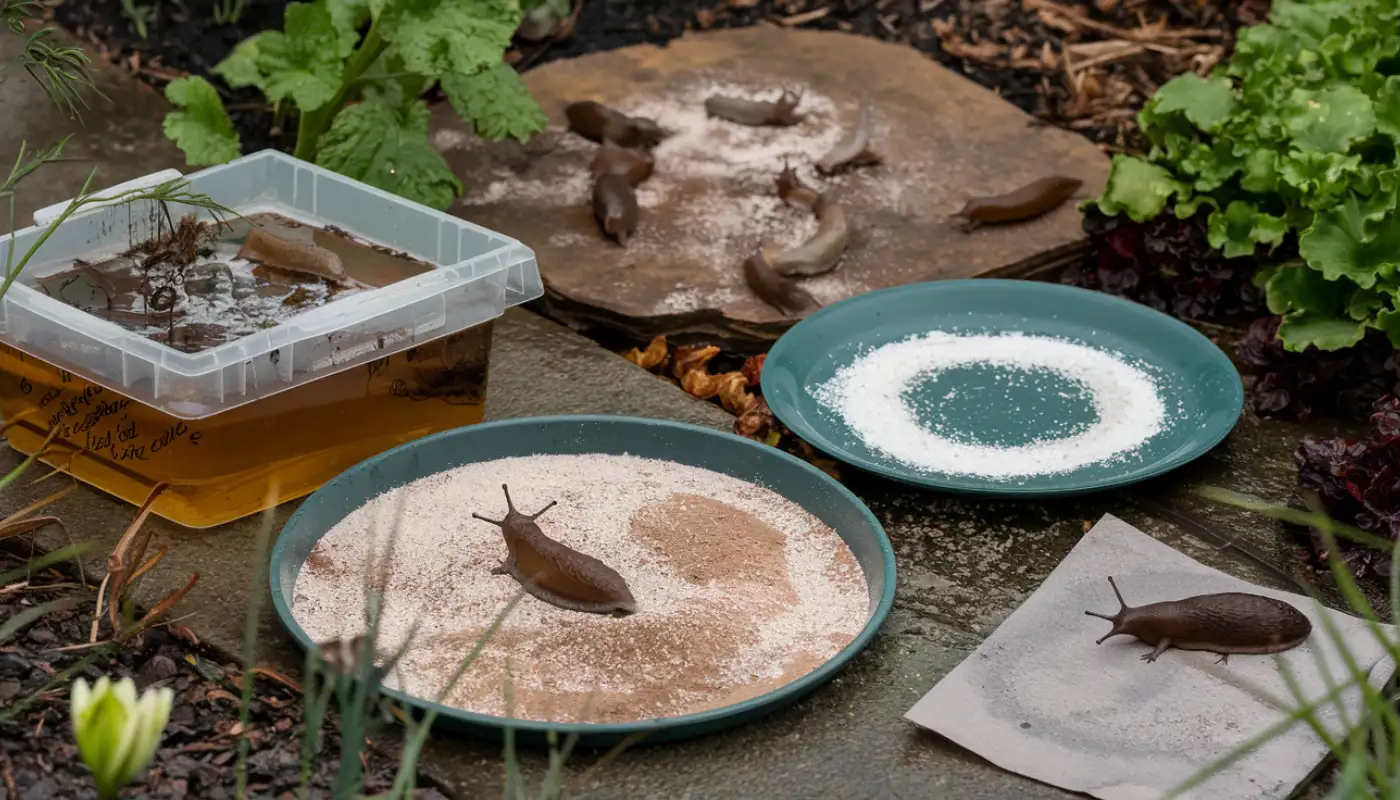
Another effective, though unusual, method for home gardeners to remove slugs from their gardens is using salt or salt solution.
Make a strong solution of salt and water and pour the content into a spray bottle. Spray the salt solution on any slug you see.
The solution will dehydrate and kill the slug within hours. You can also sprinkle some salt directly on the slug to dehydrate them.
Make sure to wash off any residual salt solution spray on your plants every morning to prevent damage.
Use the beer traps
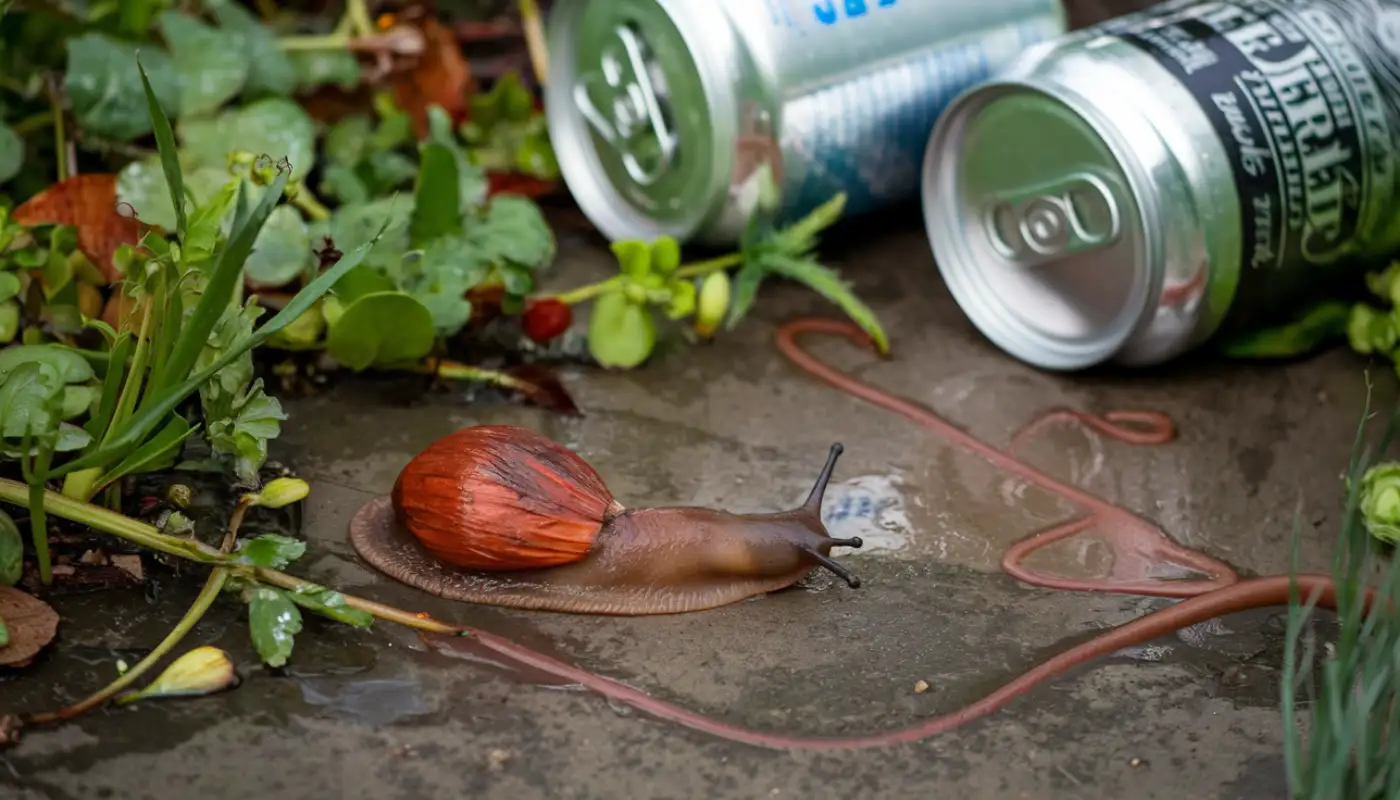
This method also works fine because snails and slugs are attracted to beer naturally.
Fill small traps (you can also use cups or bowls) with beer and sink them into the soil so that their edges flush with the ground level.
The snails and slugs would move towards the beer at nightfall, fall into the trap, and get drowned. You may need to leave this for a few nights to catch more slugs.
This method is not for the squeamish who cannot withstand the sight and smell of stale beer and dead slugs.
Better still, you can lay the beer bottles directly in your garden. You only need to pour out most of the contents and leave just enough that won’t spill out if you lay the bottles on their side.
Repeat this method multiple times until there are no more signs of slugs in your farm.
Try used coffee

Slugs do not like coffee because the caffeine in it is toxic to them. So, sprinkling some used coffee grounds around plant bases or around your garden will repel slugs.
It’s best if you add the coffee to the compost heap as well because they slowly release some nutrients that can help improve the soil.
You can also fill a spray bottle with cold, strong coffee and spray the slugs.
Deter slugs using copper tape

This may sound funny, but many have testified that this method is an effective way to combat slugs.
Stick copper tape around the plant you want to protect as a barrier – possibly around the planters, pots, or raised garden beds.
The copper tape would react with the slug’s slime and emit an electrical charge that can deter the slugs when they try to cross over the tape to get to the plant.
If you cannot access copper tape, you can also use copper wire, mesh, ribbon, or tubing to deter the slugs.
Apply Diatomaceous earth (DE) to your garden soil
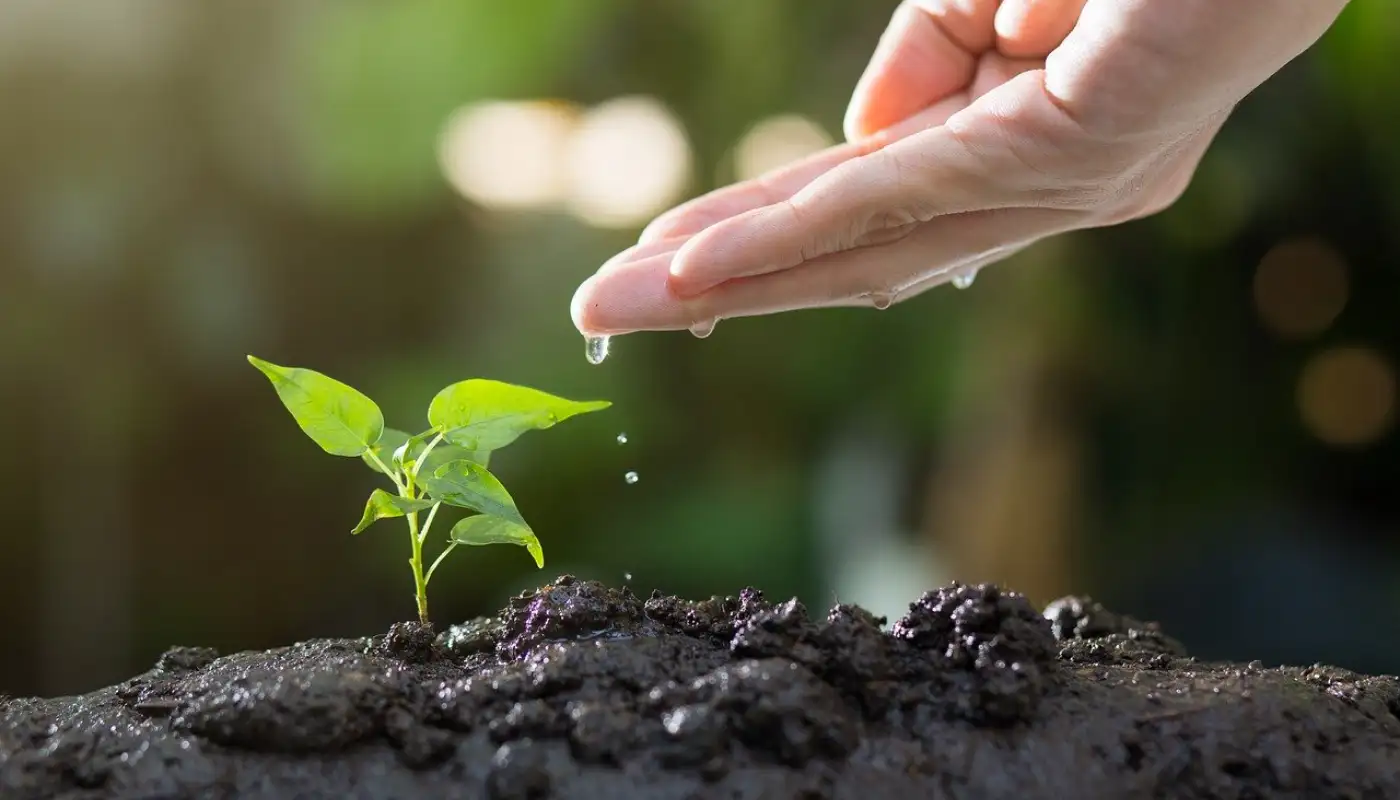
Diatomaceous earth is a naturally occurring organic compound for controlling pests.
Simply apply the Diatomaceous earth around individual plants as a barrier in a band 1in high and 3in wide. You can also sprinkle it directly on the plant’s leaves in the morning when the leaves are still wet from dew or after a slight watering.
The diatoms (fossilized phytoplankton) in DE have some microscopic sharp edges that can cut through or shred slugs’ soft bodies. This will cause the slugs to dry out and die.
You need to reapply the Diatomaceous earth once it becomes damp. If you don’t have access to Diatomacious earth, crushed eggshells can also do the magic.
It is important to wear a dust mask when applying DE so as not to inhale it.
Apply Garlic
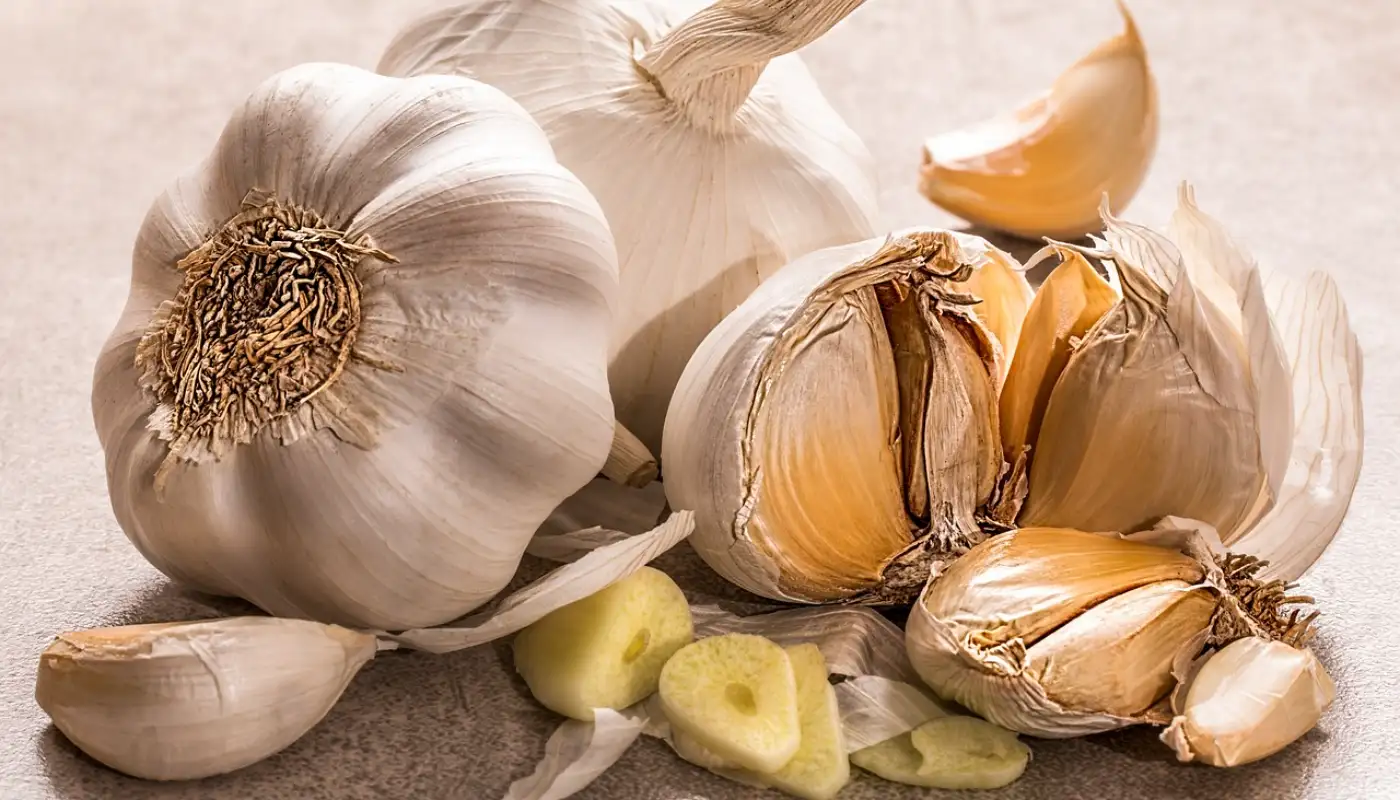
Just like slugs detest the smell of beer, they detest the smell of slugs too. So, you can crush garlic cloves and add it to the water in your watering can.
Sprinkle the mixture over the affected plants to prevent slugs from nibbling them.
If you have access to garlic powder, you can spread it around the garden plant. It will create a similar effect.
Use the catch-and-release method
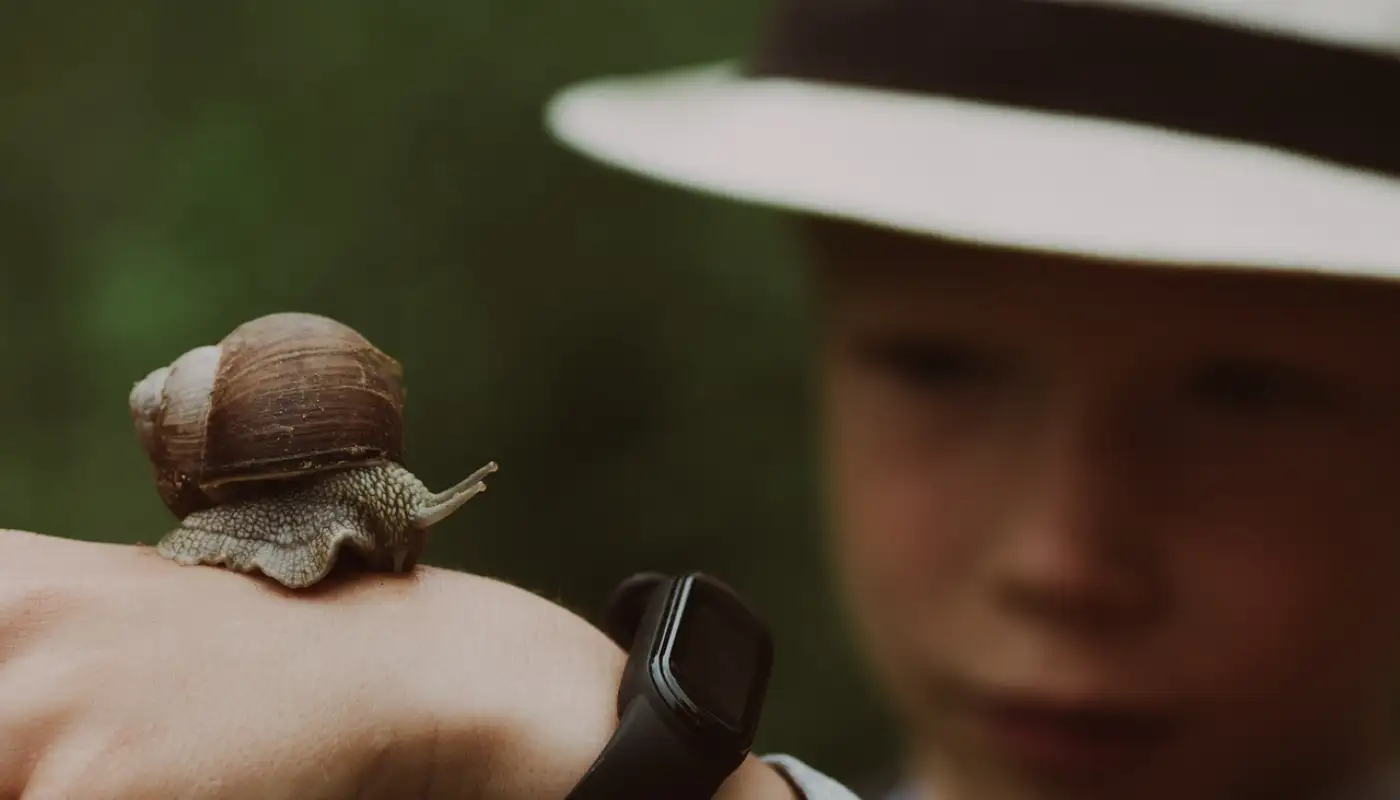
Finally, you can try the catch-and-release method to combat slugs in your garden. This method is perfect for those who are kind and can’t hurt a fly.
Naturally, slugs like hiding in dark, damp places. So, place a wet piece of wood near the slugs’ hotspots. After eating your vegetables all night, the slugs will go to the damp wood for some leisure time.
All you have to do in the morning is to lift the wood to see the hiding slugs and then throw them into the wild.
Additional Tips on How to Get Rid of Slugs in Garden
Other things you can do to control slugs and snail in your garden include:
- Turning mulch over frequently: By consistently turning over your mulch, you can expose the slugs and slug eggs, and destroy them.
- Try other barriers: Aside from coffee grounds and crushed egg shells, slugs also dislike wood ash. Hence, you can sprinkle some wood ash near plants to deter slugs.
- Keep your garden tidy: Keeping your garden tidy and weed-free regularly can eliminate items that act as food and covers for the slugs. Therefore, always try to remove fallen leaves sitting on the ground.
Conclusion
We hope that this article is helpful. Note that every garden is different, so the method that works for one may not work for you. However, there is no harm in trying any or all of the methods above to find the best method that works for you.
If you eventually find your magic method on how to get rid of slugs in garden, don’t hesitate to share it with us in the comment box or via our contact us page.
Frequently Asked Questions
The best natural slug repellent is salt. Spread it around your plants to repel slugs. Planting slug-repellent plants like anise, fennel, rosemary, rue, and wormwood can also be very effective if you don’t have other food vegetables in your garden. Otherwise, the slugs may find a way to hide in your food and vegetables.
No! It’s not always bad. Slugs have some benefits too, and can be helpful in your garden. For instance, slugs act as decomposers by feeding on dead worms, bugs, and fallen leaves. Nevertheless, the harm they cause usually outweighs their benefits. For instance, slugs are more destructive because they can feed on plants, flowers, shoots, and even roots.
Slugs can suddenly appear in your garden for different reasons. First, the moisture content of your garden can attract slugs. Naturally, slugs love wet and dark conditions, so if your garden has excessive shade and poor drainage, it will become home for slugs. Second, slugs are always active after rain.


